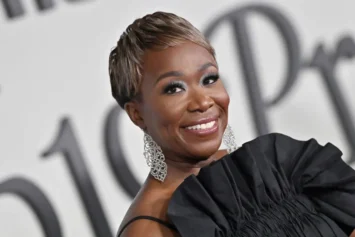By Wednesday morning, the internet erupted in a social media firestorm as the racist true story behind Quaker’s stereotypical Aunt Jemima brand made its rounds on Twitter. Lexi Kennedy (@lexikennedy35), a 20-year-old actress from New York, had begun a thread the previous day recounting how the Quaker Oats Company, which bought the brand in 1926, used the likeness of a real woman named Nancy Green to promote a racist caricature of Black women to sell its product. Green, a cook, storyteller, and activist, was born into slavery in 1834, and hired by the R.T. Davis Milling Company in 1890 to represent the corporate trademark “Aunt Jemima.”
By Wednesday afternoon, Kristin Kroepfl, vice president and chief marketing officer of Quaker Foods North America, announced the company would remove the racist imaging from its packaging as a part of its efforts to “make progress toward racial equality. This comes as individuals and corporations across the globe challenge themselves to confront the harsh realities of racial inequity amidst the renewed momentum of the Black Lives Matter movement.
R&B singer Kirby Lauryen, who posts to TikTok and Twitter as @singkirbysing, first drew attention this week to the racial stereotypes associated with the Aunt Jemima brand in a video post Monday instructing viewers on ”How to make a non-racist breakfast.” Kirby’s TikTok video, which has been viewed more than one million times, explains how the Aunt Jemima image originated from racist stereotypes of Black women.
Increased awareness about the origins of the Aunt Jemima brand drew heavy criticism this week of Quaker’s use of the ‘Mammy‘ caricature. This racist archetype, which gained wide recognition in the American South during slavery as a term for Black women performing childcare and domestic duties for white families, remains one of the most enduring racial stereotypes today.
“When I think about the brand [Aunt Jemima] and see it on the shelf, something about it always sat wrong with me, but I never really looked into the history behind it,” said Kennedy. “I started researching…and I was just like ‘OK, I didn’t know this. I don’t know how many other people don’t know this,'” she added in a statement to Atlanta Black Star. The thread has since been shared tens of thousands of times.
Although Quaker’s prompt abandonment of the racist stereotypes that have undergirded the Aunt Jemima brand for more than a century represents a step in the right direction, some, including Kennedy, remain skeptical of the quick reversal. “There has been a lot of damage done,” she said, before adding that she is still likely to avoid supporting the company.
Across social media, users exchanged opinions about Black stereotypes, and responded to Quaker’s decision to retire the brand. One user, @absurdistwords suggested that the company always knew the image was racist, but decided to keep it because profiting off of racism remained acceptable.

Since the true story behind the Aunt Jemima imagery has become widely known, other brands guilty of the same kind of stereotypical portrayal of Black people have faced mounting pressure to replace the images on their packaging. For instance, Uncle Ben’s Rice shared its plans to “evolve,” the brand’s visual identity and expressed a commitment to ending racial injustice in a Tweet posted Wednesday evening. Conagra Brands also announced plans to initiate “a complete brand and packaging review” following criticism of their Mrs. Butterworth food brand.
Social media users have applauded the efforts of those using their voices to take advantage of platforms for public discord and call out racism.



